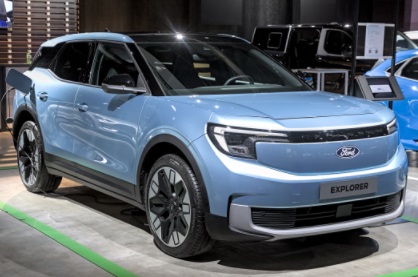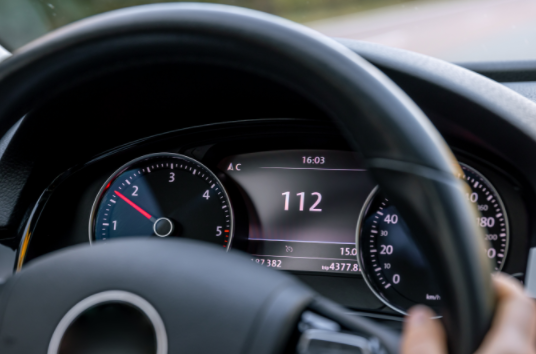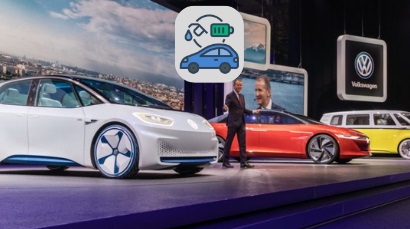Hybrid Vehicles: Exploring Types and Varieties
There has been a rise in electric car buyers, but there are car drivers who are still sceptical about pursuing fully electric vehicles, so many opt for hybrid vehicles as a way to test out the electric car while still being able to use the fuel that they are familiar with.
But what are the different types of Hybrids, how do they work and which one will work best for you?
In today’s shifting market, more people are considering electric vehicles, but some still doubt this. This is where hybrid vehicles will come in, as they offer a blend of electric and traditional fuel power. This can ease the transition for drivers who are hesitant about Electric Vehicles. But what exactly are hybrids, how do they work, and which one is right for you? Let’s explore further.
Mild Hybrids
The latest innovation in hybrid technology is the ‘mild’ hybrid system. As the name suggests, this system was not designed to exclusively power the vehicle using electric power. Instead, it offers a slight boost to the gasoline engine, particularly when going from standing still to accelerating, this also aids in relieving the load on power-intensive components such as air conditioning. This would usually use 48-volt electric systems. Mild hybrids don’t require external charging as the batteries recharge through a combination of power from the gasoline engine and recycled energy from when the vehicle brakes.
Full Hybrids
Full hybrids also come equipped with both a gasoline engine and an electrical component. However, the electrical system in a full hybrid carries a heavier load compared to that of a mild hybrid. In fact, most full hybrids can travel solely on electric power for a considerable distance. This usually occurs at lower city speeds, which explains why you might notice a full hybrid's City MPG rating surpassing its Highway MPG rating, unlike conventional gasoline-powered vehicles where the opposite is often the case.
Electric Vehicles with Range Extender Hybrids
While strictly speaking, all-electric vehicles aren't hybrids, some are designed with a small petrol engine as a backup. When an electric vehicle runs out of charge, it needs to be recharged before it can be driven again. Range extender hybrids use their petrol engine to either charge the battery or power the electric motor, ensuring you're not left stuck. Depending on the size of the petrol engine, this backup power can provide anything from a few dozen miles to hundreds of miles.
Plug-In Hybrids (PHEVs)
So far, all the hybrid cars we've looked at charge their batteries using only their own systems. But plug-in hybrids are different. They can charge up their batteries using external chargers and their own internal ones. That's why plug-in hybrids usually have longer electric-only ranges compared to full hybrids. Essentially, plug-in hybrids sit somewhere between full hybrids and fully electric cars.
Insights into Hybrid Power
PHEVs have larger batteries compared to standard hybrids, enabling them to travel longer distances solely on battery power. Hybrids combine petrol and electricity for power, resulting in lower fuel consumption and reduced greenhouse gas emissions. However, actual fuel efficiency, emissions, and MPG can vary based on the hybrid type, speed, and driving style. These cars utilise technologies like Continuously Variable Transmission (CVT) to enhance fuel efficiency by optimising engine speeds and gear changes.
Regenerative braking in hybrid cars captures energy lost during braking, converting it into electricity stored in the battery. When braking, kinetic energy that propelled the car forward is transformed into electricity by the hybrid's regenerative braking technology. While effective for normal braking, it's less suitable for sudden stops, so hybrids also use standard friction brake discs for quick braking.
Most hybrids use nickel-metal-hydride (NiMH) batteries, but plug-in hybrids and newer models often employ lithium-ion (Li-ion) batteries for higher energy density and greater driving range.
Despite common misconceptions, hybrid car batteries are durable and rarely require replacement. While new batteries can be expensive, replacement is uncommon. For instance, Toyota offers Prius models with up to an 11-year unlimited mileage warranty, and tests have shown their batteries retain performance even after many years and miles of use.
Conclusion
Curious about electric cars but not ready to make the leap? Hybrid vehicles offer a charming compromise, allowing you to experience electric features while still relying on petrol when needed. With their blend of innovation and familiarity, hybrids invite you to embrace a greener future without sacrificing convenience. So why not give a hybrid a try today? It might just spark a love affair with eco-friendly driving!
Source:










